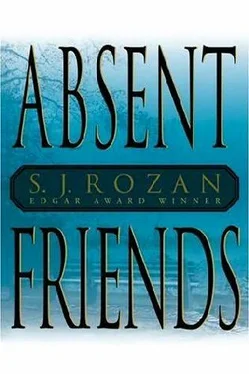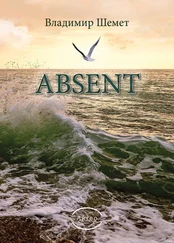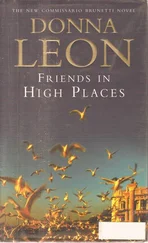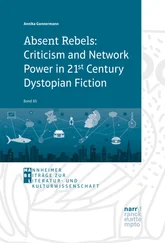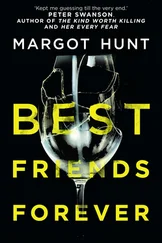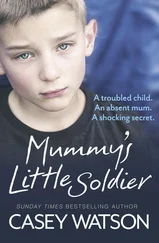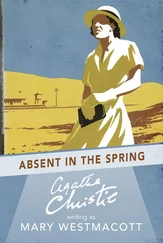Twenty-five years old: Jimmy's on the ferry. Two hours, back and forth five times already, how stupid is that, but he can't decide.
It's a February day, the sky that hard blue it only gets in winter, everything sharp and fresh. Not like that gray day last week, sitting under the bridge with Tom.
When Jimmy first gets on the boat, he goes to the front. The sunlight glints on the water as Manhattan grows and grows. When he can't decide, he stays there while the boat heads the other way. The towers of the skyline throw bursts of light at him, but they keep getting smaller. After that he goes inside and buys coffee and stares through the window. The glass is so clouded and scratched that he can't make anything out.
Jimmy's thinking this: More than anything, he wants to stop keeping this secret. For months it's been inside him, filling up places that should have been for other things. This secret is changing him, and Jimmy doesn't want it anymore. He wants to stand up and say, This is what happened that night on Coleman Road. This is why Jack is dead, and why Markie.
But if he does that, what happens?
One thing, Sally would find out Markie chose to be where he was. He didn't have to leave her and Kevin and put himself where this could happen to him, but he did. As bad as things are for Sally now, Jimmy thinks knowing that would be much worse.
And Tom goes to prison. Peggy Molloy's lost both sons then.
And if Tom's in prison, he's not giving money to Sally, that idea he had about giving her money. Jimmy could give her some himself, but he doesn't make that much, and he's just a fireman, he never will.
And Vicky. She just had a baby, hers and Tom's second. Vicky and Sally, both raising their kids without fathers, Jimmy thinks about that.
And this, too: Tom says if that's what it takes, he'll go straight. That would be a good thing, God, yes, Jimmy knows. For Tom, for Vicky, for a lot of people.
Through the beat-up glass Jimmy sees sunlight flash off something, it looks like a flame. And again he thinks, what he wants is to not have this secret anymore. He wants to walk into a fire and have it burned away. That's what it would feel like, he thinks, if he told it. It would hurt, like getting burned, but he'd be clean after that.
But if he does that, who's saved?
Only Jimmy.
The other way, it's better for everybody else. Jimmy can't see anyone, besides him, that the other way-Tom's way-isn't better for.
The boat groans into the slip back at home, back on Staten Island. Jimmy goes outside on the side where the Verrazano Narrows Bridge is, and when the boat pulls out from the slip he stands in the wind and the sunlight, so strong in winter it's not yellow, it's pure white but it doesn't warm you. He watches the bridge slide by, watches Staten Island get small.
When they get close to the Manhattan side, Jimmy checks his pocket for Phil Constantine's address. He moves to the front and he watches the towers come close. As the boat slides into the slip, sunlight bounces off the windows at the top of the World Trade Center, the ones highest in the air. It sparkles off the water at the end of the island. It's so bright it even glitters on the pathway stones, worn smooth by so many people over so much time.
The sun's a huge fireball burning in the sky, and Jimmy wants to be the sun. That strong. That clean. That distant.
But Jimmy's a twenty-five-year-old guy standing on the steel deck of a ferry. When it docks, when they lower the ramp, he takes one more minute, like he's still not sure. He's not. But he heads down the slope with the people around him. Jimmy stands for a moment at the rail, looking back. Then he turns, leaves Superman on the boat, and walks out onto the streets of Lower Manhattan.
And at the rail now, Jimmy stands there, in that same place, different, after so many years, but the same. The ferry that docked is pulling out again, carrying people across the water. Jimmy finishes his coffee. He checks his pocket for his St. Florian medal that his mother gave him his first week in the Academy; and for Marian's photograph, the single one he's kept all these years. They're both there, they always are; he's taken them into each house as he's transferred, slips them into the pocket of his dress uniform for ceremonies and funerals. But he's always checked for them as he's heading for the firehouse, and he checks now.
Jimmy glances at the river and the ferry one more time. Then he turns and walks out onto the streets of Lower Manhattan.
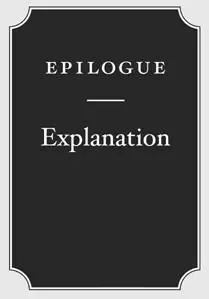
SECRETS NO ONE KNEW
We lost voices
Lives
Loved ones
Secrets no one knew
– Sarah Williams, 17, “Voices” (excerpt),
from Wordsmiths: A Teen Poetry Journal
TREE, FALLING
A tree falls in the forest; no one is there to hear it. To whom does it make a difference, then, whether it makes a sound?
COMPLICATED WORK
What is a good man but a bad man's teacher?
What is a bad man but a good man's job?
– Lao-Tse
THE MAN WHO SAT BY THE DOOR
A New York City police officer tells this story: I took my wife upstate to visit my uncle Rob. To get away for a few days, you know? This was maybe a month after 9/11. Rob used to be a warden, one of the prisons up the Hudson. They call them medium security, but, trust me, they're tough places. He retired long ago, kids are all grown and gone, wife died years back. Talks about moving to Florida, but still lives in the same house he used to, across the street from the main gate. So the first night up there, Rob makes lasagna, we talk for a while, then my wife and I are ready to turn in. Rob takes us to this bedroom upstairs, says good night, heads downstairs again. You staying up for a while? I ask him. No, I'm going to sleep, he says. I sleep here. He points to a chair in the living room, facing the door. Got used to it years ago, he says. And damn if he doesn't sit down in that chair, fully dressed-even shoes-and sleep like that until morning. And all I could think was, I thought I was putting in a lot of overtime. You know?
THE OLD MASTERS
(SAILING CALMLY ON)
About suffering they were never wrong,
The Old Masters: how well they understood
Its human position; how it takes place
While someone else is eating or opening a window or just walking dully along…
In Brueghel's Icarus, for instance: how everything turns away
Quite leisurely from the disaster; the ploughman may
Have heard the splash, the forsaken cry,
But for him it was not an important failure…
… and the expensive delicate ship that must have seen
Something amazing, a boy falling out of the sky,
Had somewhere to get to and sailed calmly on.
– W. H. Auden, “Musée des Beaux Arts”
THE WOMEN IN THE TENT
As unidentified bodies and parts of bodies were brought in refrigerated trucks to the morgue tents after September 11, a group of Stern College students-religious Jews in their teens and early twenties-took it upon themselves to ask for rabbinical dispensation to allow them to relieve their male counterparts in sitting with the bodies and reciting the prayers for the dead, who, according to Jewish custom, must not be left alone between death and burial. By Jewish law women may recite prayers over the bodies of women but not those of men. Of many of the remains brought to the morgue, it was unknown whether they were male or female. Nevertheless, permission was granted.
FIRST IN, LAST OUT
Captain Patrick Brown, one of the most decorated firefighters in the history of the FDNY, lost his life in the north tower on September 11. At his memorial service, held at St. Patrick's Cathedral on what would have been Captain Brown's forty-ninth birthday, pallbearers carried an American flag made of flowers, on which rested his helmet. Captain Brown, in the tradition of FDNY officers, was first in and last out at any fire, entering ahead of his men and not leaving until they were all out safely. Ladder 3, the company he commanded, lost twelve men on September 11. Captain Brown's memorial service was the last.
Читать дальше
